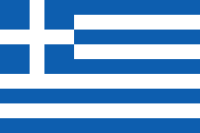
Photo from wikipedia
Advances in genomic medicine have evolved to include rapid whole genome sequencing (rWGS) in pediatric intensive care settings. Traditionally, genetic testing was conducted in outpatient clinics, with stepwise genetic testing… Click to show full abstract
Advances in genomic medicine have evolved to include rapid whole genome sequencing (rWGS) in pediatric intensive care settings. Traditionally, genetic testing was conducted in outpatient clinics, with stepwise genetic testing occurring over several years. This delayed the time to diagnosis, making it more difficult to include underrepresented groups, such as those who identify as Black and Latinx. National genetic sequencing programs have also struggled to engage these participants in their studies, leading to a significant disparity in access to new genetic technologies. The purpose of our study was to compare the demographic characteristics of families enrolled in both an Odyssey Program (N = 46), defined as outpatients in the Genetics Clinic who have had prior genetic testing, and a newly implemented rWGS (N = 52) sequencing program. Despite living in a large, ethnically diverse city, our results indicated that parents in the Odyssey program differed significantly from parents in the rWGS program in level of education, family income, and insurance status. For example, 71.5% of parents in the diagnostic Odyssey program had a college or advanced degree, whereas 42% of parents in the rWGS program had this level of education. Family income and insurance also differed, with 48.6% of families in the Odyssey program earning $100,000 or more versus 28.2% in rWGS; 56% of parents in the Odyssey program had private insurance with 26% on Medicaid whereas only 23% of parents in rWGS had private insurance, with the vast majority of children on Medicaid (69%). Thus, our Odyssey program illustrates some of the common pitfalls in implementing genomic testing in an ethnically diverse community, including lack of referrals, travel to outpatient visits, and a cultural mismatch with providers. The successful enrollment of underrepresented groups in the rWGS program demonstrates that given the opportunity to participate in genetic testing, families are interested and aware of the potential benefits of this testing for their child. As genomic sequencing transitions from outpatient to inpatient settings, an opportunity arises to close the health disparity gap. Recommendations for implementing rWGS in pediatric, intensive care settings that address the common barriers faced by underrepresented families are discussed.
Journal Title: Journal of genetic counseling
Year Published: 2020
Link to full text (if available)
Share on Social Media: Sign Up to like & get
recommendations!